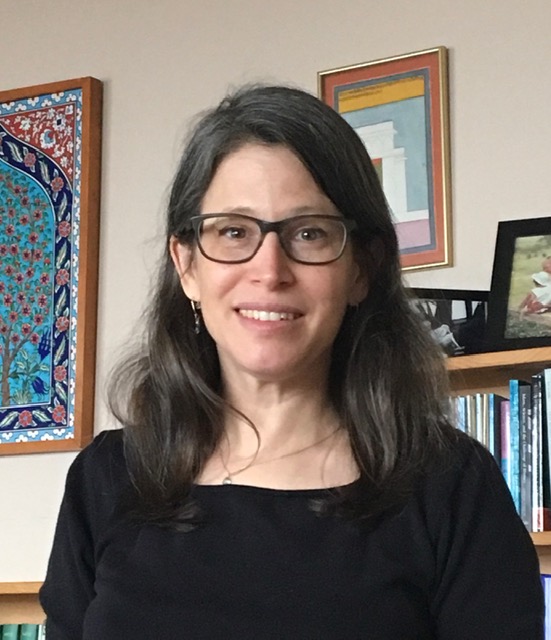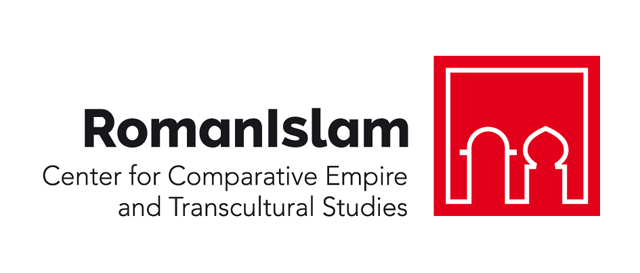Gender and Social Control: The Role of the Women
"Eudoxia the Jezebel: Women of Means in the Later Roman Empire" by Susanna Elm
Social control in the later Roman empire, including that of women, had many faces. Though recent years have seen significant advances in the analysis of material and documentary sources that have expanded knowledge of non-elite women and the radius in which they operated, we still possess vastly more information about women of means. This paper will focus on one such women, the empress Eudoxia, to show how late Roman imperial women were portrayed when exercising control and what that may tell us about social control more generally..
 Prof. Susanna Elm is the Sidney H. Ehrman Professor of European History in the Departments of History and Classics at the University of California, Berkeley. Her research focuses on the intersections of culture and power in the Later Roman Empire. She is author of Sons of Hellenism, Fathers of the Church: Emperor Julian, Gregory of Nazianus, and the Vision of Rome (Berkeley 2012; Winner of the SCS Goodwin Award of Merit 2013), and of Emperor and Eunuch: Powerful Bodies and Imperial Representation in the Theodosian Age (Berkeley forthcoming).
Prof. Susanna Elm is the Sidney H. Ehrman Professor of European History in the Departments of History and Classics at the University of California, Berkeley. Her research focuses on the intersections of culture and power in the Later Roman Empire. She is author of Sons of Hellenism, Fathers of the Church: Emperor Julian, Gregory of Nazianus, and the Vision of Rome (Berkeley 2012; Winner of the SCS Goodwin Award of Merit 2013), and of Emperor and Eunuch: Powerful Bodies and Imperial Representation in the Theodosian Age (Berkeley forthcoming).
"Gender and Control in Early North African Maliki Law Islam" by Marion H. Katz
In the contemporary world, issues of female modesty and gender segregation loom large in debates over Muslim identity. In envisioning the processes through which societies were Islamized in the centuries following the early Islamic conquests, one might thus imagine that distinctively Islamic attitudes towards gender roles, the regulation of sexuality, and the public visibility of women might have played a leading role. Looking at legal texts attributed to North African Muslim scholars of the ninth to tenth centuries CE, this paper asks to what extent this was in fact the case. Focusing on these scholars’ normative programs rather than on de facto social behavior, the paper explores whether and how they centered issues of gender and control in their legal models. In particular, it uses the “male provider” model of the Muslim marriage contract and the criteria for ‘adala (moral probity, as required for prayer leadership or witnessing in court) as test cases for the degree to which early North African Muslim scholars envisioned transformation of gender roles as a central component of the Islamization of society.
 Prof. Marion Holmes Katz is Full Professor of Middle Eastern and Islamic Studies at New York University. She received a BA from Yale and a PhD from the University of Chicago. She has taught at Franklin and Marshall College and Mount Holyoke College. Her research revolves around issues of Islamic law, gender, and ritual. Her publications include Body of Text: The Emergence of the Sunni Law of Ritual Purity (SUNY Press, 2002), The Birth of the Prophet Muhammad: Devotional Piety in Sunni Islam (Routledge, 2007), Prayer in Islamic Thought and Practice (Cambridge, 2013), and Women in the Mosque: A History of Legal Thought and Social Practice (Columbia University Press, 2014).
Prof. Marion Holmes Katz is Full Professor of Middle Eastern and Islamic Studies at New York University. She received a BA from Yale and a PhD from the University of Chicago. She has taught at Franklin and Marshall College and Mount Holyoke College. Her research revolves around issues of Islamic law, gender, and ritual. Her publications include Body of Text: The Emergence of the Sunni Law of Ritual Purity (SUNY Press, 2002), The Birth of the Prophet Muhammad: Devotional Piety in Sunni Islam (Routledge, 2007), Prayer in Islamic Thought and Practice (Cambridge, 2013), and Women in the Mosque: A History of Legal Thought and Social Practice (Columbia University Press, 2014).


